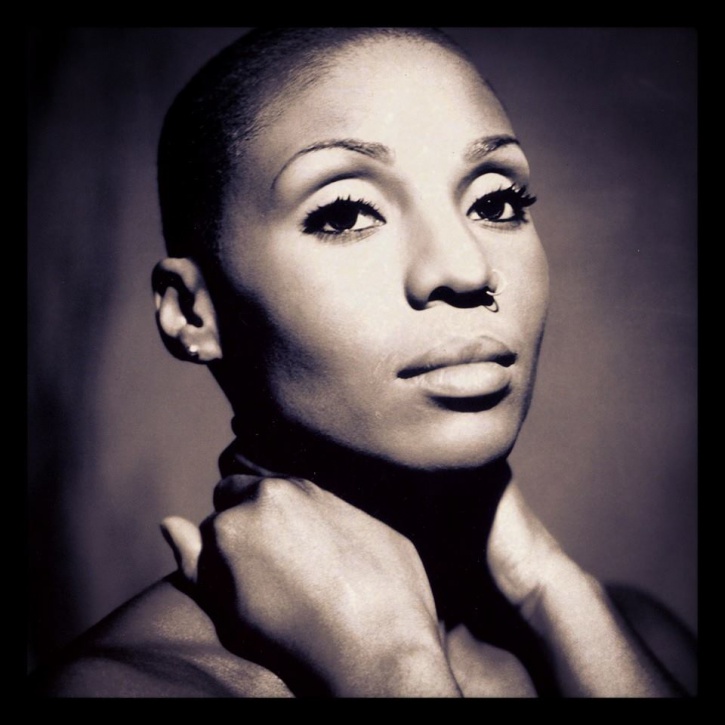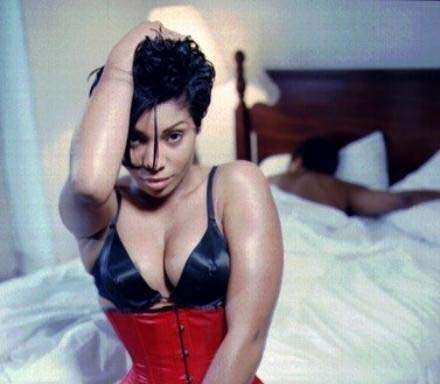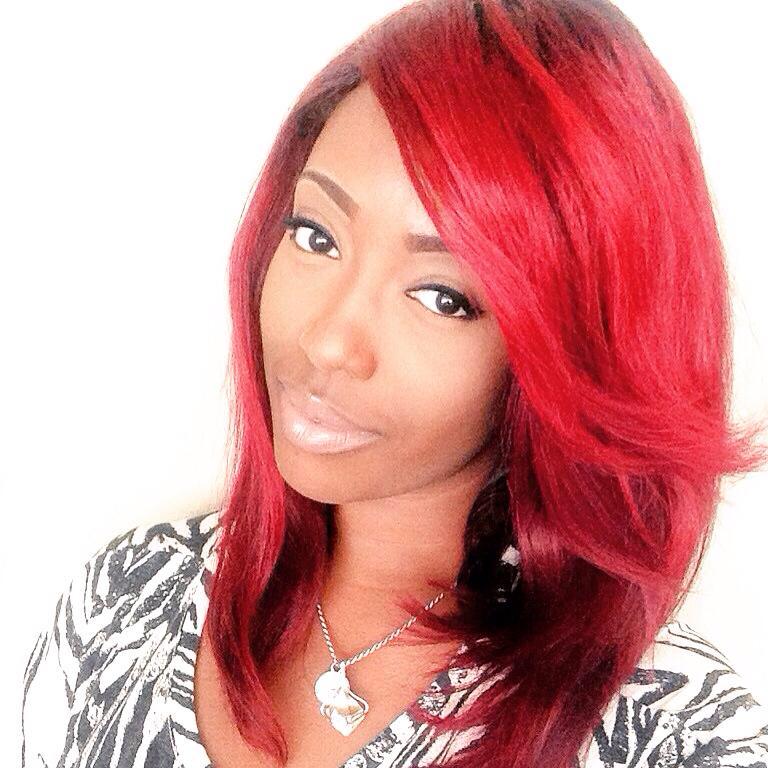
Great music stands the test of time and during the 90s era, romantic ballads and party anthems were created that continue to ring true for patrons of today. During a time when the subject of sex was dominated by the likes of young Robert Kelly and Jodeci, the female point of view was less often represented. That is until Adina Howard dropped her debut single “Freak Like Me” in 1995.
Her story forever changed the face of R&B for female artists and placed a face on sexual liberation for Black women nationwide. 1995 wasn’t like today where women proudly cling to their free-spirited thoughts of sexual expression. Sexual fulfillment wasn’t a conversation that was happening commonly among Black women, but when Adina popped on the scene, women began to think twice about the sex they were having and their relationships with themselves.
For several years after her industry debut, Adina topped the charts with sexually charged anthems that continued to raise awareness about female sexual satisfaction, but like many artists of that era, Adina seemed to disappear overnight.
Twenty-five plus years later and ready to take on the world once again, the happily married multi-talented songstress has a lot to say about her rise to fame, the current state of music and sexual liberation. I had a chance to chat with the woman who first introduced me to sexual fulfillment as a young girl, and our conversation was nothing short of insightful.
ABOUT "FREAK LIKE ME"
“Freak Like Me” shocked the world with its bold messaging coming from a woman of color, but Adina doesn’t take all of the credit for the success of her first single. “The song is based on conversation between me and my former manager about my experiences,” says Adina. “I had conversations about our exchanges with the writers and producers of the record and that’s how “Freak Like Me” was written.”
When asked about why she believes the song was so successful, she attributes its popularity to the shared human experience. “When people can relate to certain subject matters like 'Freak Like Me,' that human experience is the reason why the song was so successful because people can relate.”
Many have credited Adina with being a catalyst for change within the female Black community as it pertains to sexual liberation, but her take on the entire matter is far more relaxed. “I didn’t set out to begin a sexual movement,” corrects Howard. “I’m grateful that I was able to contribute. It wasn’t something that I set out to do. I was just being me and expressing myself through my music, and it just so happens that people were able to relate to it."
"[The song] opened a door for conversation and for women to explore and be comfortable with their sexuality."
ON SEXUAL LIBERATION
It’s safe to say that American society is within a new wave of feminism and female sexual liberation, and when it comes to this topic, Adina has no issue with discussing how she feels. As a sexually liberated woman herself, she empathizes with how sexual confidence benefits a woman’s overall well-being. “I feel it’s important because sexual confidence means a whole lot,” she begins as her voice becomes more passionate. “I can’t say it means everything, but it is a part of the self-esteem. If a woman can be sexually comfortable and confident, then to me it reflects in other areas of her life. She isn’t questioning her value or her worth. Every aspect of who we are makes up the whole. And that was important because you don’t have to feel inhibited or restraint.”

Throughout history, society has gone to great lengths to dampen female sexuality, discouraging many women from embracing and enjoying a natural component of themselves, but Adina believes a woman’s sexuality is for her to claim. “Sex isn’t just for men to enjoy. It’s for women, too. 'Freak Like Me' was successful because it just wasn’t about men being satisfied. It’s stating “as a woman I’m allowed to have sex and be satisfied by it.” It’s liberating,” she explains. “As women, we have to understand that it’s not about what society thinks, it’s about how you feel and how confident you are about your own sexuality”
WHY SHE LEFT THE INDUSTRY
It’s always baffling to the public when a popular artist is on top one day and then non-existent the next, and for Adina Howard her sudden drop from the spotlight was based on business deals gone sour. “I was committed to what I signed up for, but people on the other end were not doing their part and weren’t as committed,” she states. “They constantly wanted to use me up for their gain, and in the process I’m losing. I got to the point where I said I can’t do this and I will not do this because I am more than what they are telling me I’m worth. No one can tell you your worth, unless you believe it, and I knew they were telling a lie because of their actions and through paperwork.”
Fed up with one-sided treatment, Howard made her exit from the industry to pursue other interests outside of the music industry that would help her regain control over her life and her career. After going into prayer and being led into the culinary arts as a second calling, Adina attended Le Cordon Bleu and went on to receive an Associate’s Degree.
After utilizing her skills as a line cook for two years, Adina quickly realized that her talents would be better served elsewhere, and just like that the industry that once pushed her out was once again at her doorstep asking for her contributions once again.
ON HER RETURN TO MUSIC
Every true musician and lover of music can’t shake the desire to put their art into the world, and Adina is more than thrilled to see a reemergence of support for her style of storytelling set to rhythmic melodies. “I’m marinated in high favor,” gushes Howard when asked about her return to music. “My single is coming out and a possible EP. Music is picking up again. I was done with the situation, but I keep getting called back. And because I keep getting pulled back, I recognize I need to be obedient and finish out the work I’m being called to do.”
When asked about the role she will play in music this time around, she feels she has a purpose to bring back an element that seems to be missing in today’s melodies. “Authenticity,” she states. “My purpose is to fill the void and give the industry in our genres of music what it is missing. My stories could possibly be your moments and we can share together through music.”
ON BLACK SOUND BEING ADOPTED BY MAINSTREAM
Within the last 10 years the industry has seen an explosion of soulful tunes coming from musical artists outside of the urban community. For many, the adaptation of the “Marvin Gaye” sound by the likes of artists such as Justin Timberlake and Robin Thicke appears to be a usurp of Black music, but Adina begs to differ. “I have no problem with “white chocolates,” as she so lovingly labels them. “That’s what their labels choose to push and that is what they choose to sing. Hopefully it is the music they love. I don’t mind people following their heart and doing the type of music they choose to do no matter what color of skin they happen to be rocking. Music is universal and it should be colorless, so it doesn’t bother me.” She goes on to speak about the real issue with Black music of today.
“What bothers me most is that we as people of color have not focused on the quality of the music we put out in the same way they have put focus on putting out our music,” she explains. “Music right now is tasteless, bland and cookie cutter. It’s kind of like dealing with a franchise. Some artists are good, some not so much. Nothing out right now is satisfying [in the urban genres of music] and that’s why people keep hopping from artist to artist. Music is falling flat,” she laments. “Rap is wack, R&B is falling off, and the radio is playing what they are paid to pay. The radio is no longer the trend setter. They aren’t hit makers. Everyone is now money hungry."
ON THE RELEASE OF HER DOCUMENTARY
Along with every impactful person comes a story detailing the journey of their lives, and this spring Adina shares intimate details of her life’s journey with fans and new converts. The documentary, Adina Howard 20: A Story of Sexual Liberation is the brainchild of Gezus Zaire, a life-long supporter of Adina who wanted to tell her full story. “He wanted to get the full scope of what took place, so I just let him do what he does,” she states casually. Fans and those who are just getting to know Adina for the first time can expect to see a different side of the songstress and gain access into her world.
The documentary is currently being pitched to several film festivals in hopes of gaining more exposure. You can watch the full documentary here.
 Glamazon Tyomi is a freelance writer, model and sex educator with a deeply rooted passion for spreading the message of sex positivity and encouraging the masses to embrace their sexuality. Her website, www.sexperttyomi.com, reaches internationally as a source for advice and information for the sexually active/curious. Follow her on Twitter at @glamazontyomi and the all-new “Glamazon Tyomi’s Sex Academy” radio show here.
Glamazon Tyomi is a freelance writer, model and sex educator with a deeply rooted passion for spreading the message of sex positivity and encouraging the masses to embrace their sexuality. Her website, www.sexperttyomi.com, reaches internationally as a source for advice and information for the sexually active/curious. Follow her on Twitter at @glamazontyomi and the all-new “Glamazon Tyomi’s Sex Academy” radio show here.









